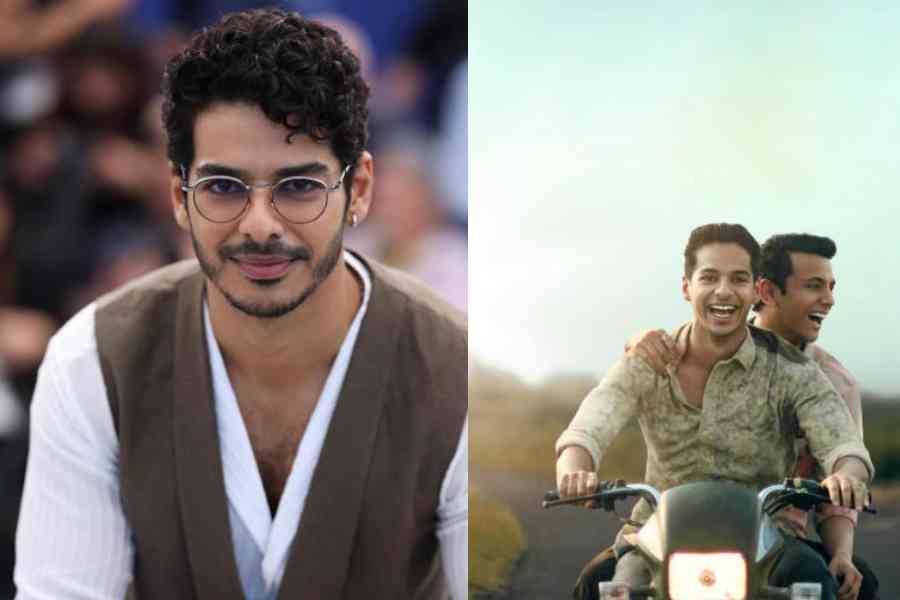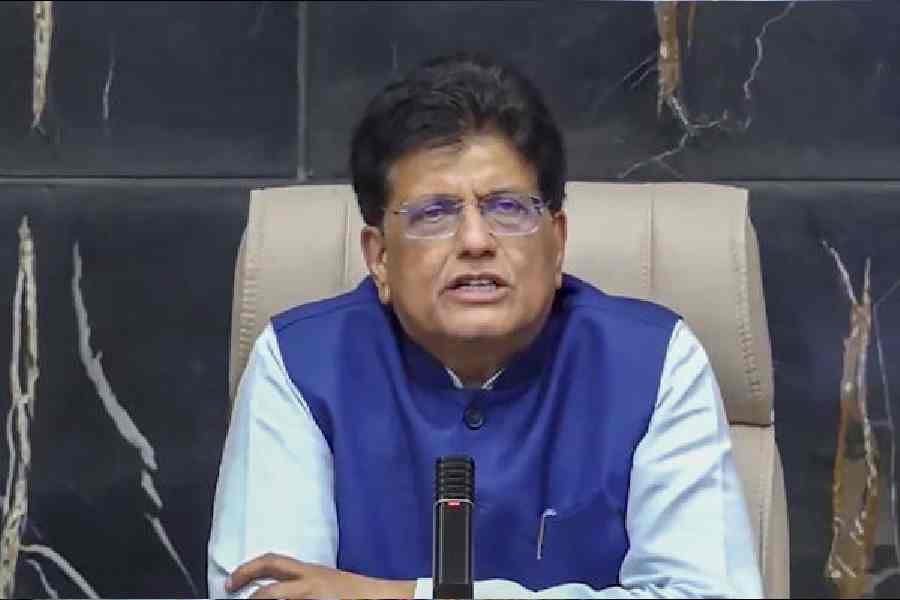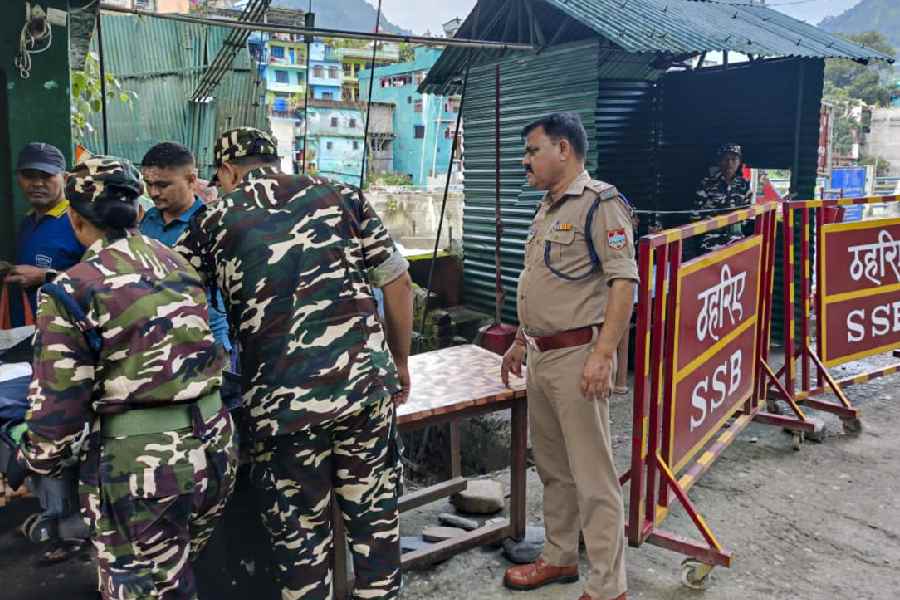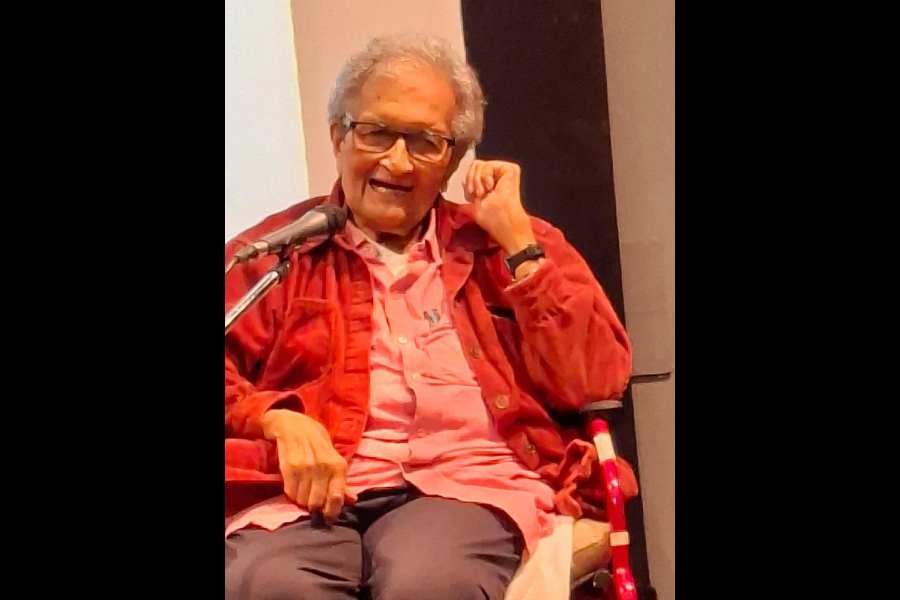Just days after his film Homebound became India’s official entry to the 2026 Oscars, t2 chatted with actor Ishaan Khatter on the experience of the film, directed by Neeraj Ghaywan and also starring Vishal Jethwa and Janhvi Kapoor, and the fantastic phase — The Perfect Couple to The Royals to Homebound — that he has been having.
Has the feeling sunk in yet?
This is a dream for any artiste. This is a very big milestone. Honestly, the film goes beyond the awards and accolades that have come its way so far. Homebound is a film I very deeply believe in and I am extremely proud of it. I was proud of it before it achieved all these landmarks and accolades from different parts of the world.
With India choosing Homebound (which releases in theatres on September 26) as a representative at the Oscars, I stand reassured, humbled and very grateful. After a long time, I feel a deserving film has been selected to represent India on such a big stage. I would have said the same even if I wasn’t a part of this film.
I believe you were on a flight when you got the news...
Yes, I was flying back from New York to Mumbai. The Wi-Fi in the flight kept coming and going but the moment it came back, my phone was flooded with messages and calls and I couldn’t understand ki ho kya raha hain!
I called Neeraj and heard him giving gaalis for what is perhaps the first time in his life... asking me where I was since he couldn’t get through to me. That is when I realised that we are the official selection (for the Oscars) and it took a while for that to sink in. So, when I heard the news, main literally hawa mein udd raha tha! (Laughs) And a part of me still is.
Cannes to Toronto, the film has been to some of the most prestigious film festivals in the world. The feedback has been hugely positive. What has your biggest takeaway from that been?
I don’t know where to start, honestly (smiles). I don’t mean to sound disingenuous but the truth is that I am very humbled by this film. It was very special starting with a festival like Cannes. Homebound has a strong, rooted Indian cultural context... those are the kind of films Neeraj makes because he understands that world so deeply. But he also has the unique ability to make films that have a universal idiom and voice.
At Cannes, we were beautifully taken aback when the audience — mostly comprising French critics, film connoisseurs and cinephiles who are traditionally known to be an audience tough to please — watched the film with French subtitles, but they were so invested in it. They were laughing and crying and literally sobbing through the last 20 minutes. There were strangers who were hugging Neeraj and crying! My American manager, who I never knew that intimately, told me that he connected with a scene of mine so deeply that it brought him to tears... the reason being that he has faced that kind of othering that you see in the film because of his faith. Here we have a story about two boys in rural India and it was beautiful to see it connecting with people across the world.
At TIFF (Toronto International Film Festival), a very special scene of mine in the film was met with applause by 1,800 people, and that too twice. We had a screening in Mumbai yesterday, with stalwarts from the industry present — Javed saab (Akhtar), Aparna Sen ma’am, Naseer saab (Naseeruddin Shah), Konkona (Sensharma).... They were all brought to tears and said some very special things about the film.
The story of two boys in rural India bound together by friendship and then thrown asunder is different from your situation in life. But did you identify with any aspects of the film, especially the aspect of othering?
I connected deeply to the part because it was beautifully written and keenly observed. I am the child of a mixed-faith marriage. That has been a very big part of my upbringing and my identity in a country where we cherish unity and diversity. It has been a long time since we have seen a film that talks about empathy. The friendship between these two boys is inspiring and I connected to those facets of the script very strongly.
Neeraj has a social consciousness that rises above and beyond his films. He weaves that into his stories in a way that is both beautiful and invisible. The important thing is that his politics never supersedes his filmmaking.
Homebound is a very humane film. It talks about empathy, compassion and kindness, and that is a message that the world could use.
You and Vishal Jethwa seem to be such a tight unit, both on screen and off it. Did you have to do anything special to build that camaraderie?
Neeraj is a very methodical filmmaker. The first thing he told both of us was that he needed us to be vulnerable with each other. He said: “It’s not enough for me that you have a healthy relationship as colleagues and only share your success stories and your happiness with each other. I want you to be able to be vulnerable with each other.” Essentially, he was pushing us to trauma bond, be open with each other and even have secrets that are our own, ones that we wouldn’t share even with him.
The first meeting that we had was at my place. We sat on the balcony, looking at the sea and sipping coffee. We got to know about each other’s childhood. A lot of discoveries happened that day and, in a very invisible way, that became the foundation of our friendship.
We look out for each other. He calls me his older brother even though I am younger. He is also a very honest person. During the shoot, he never shied away from asking a question, no matter how it would make him look. I respect that. The two of us were able to lean on each other.
As part of the prep, we went to Barabanki (in Uttar Pradesh) together. We were accompanied by Neeraj and Shreedhar Dubey, who has acted in the film and also written the dialogues. We did dialect coaching, worked on text, on language. It was an entry point for us with the characters. That trip helped us meet the local people... they would allow us into their houses and we would eat with them, sit and read our scenes with them... that whole experience gave us an authentic feel of the space of the film.
Vishal had hurt his leg then and had a cast on it. I would literally carry him around to the point that he started saying that he felt like he was my girlfriend because I was sweeping him off his feet all the time! (Laughs) We share a very cute friendship and that has found itself into the film as well.
Having diverse projects like The Royals and Homebound within months of each other speaks of your versatility as an actor. What does it mean to you?
It means a lot to me. I am very grateful that different people have been able to see me in so many different lights so far. This year, especially, feels very special. It started with The Perfect Couple (with Nicole Kidman and Liev Schreiber, on Netflix), which was a very different platform for me. The Royals and Homebound coming back to back has been a rare opportunity because the two projects couldn’t be more different. The Royals (in which he played a prince) was a glamorous role, which, also, I hadn’t played before. Homebound was a special and immersive experience. I am very grateful, I am living the dream.
In terms of vibe, setting and even the kind of role, did Homebound feel a lot like your first film Beyond The Clouds, directed by celebrated Iranian filmmaker Majid Majidi? Did it seem like a full-circle moment for you?
In many ways, yes. After Mr Majidi, Neeraj is the only director that has pushed me in that way and has recognised those facets in me as a performer. With some roles, it is important to be light on your feet and just flow. But Neeraj demanded a very immersive performance. And when I say living a role, what I mean is the deep care and involvement that Neeraj had for this... he led by example. And we were all inspired by that. For me, it felt very critical and crucial because this is who I am, this is my identity as an artiste... and after a very long time, I feel like I got the opportunity that I was craving for.
Neeraj took 10 years to make his second film after his first (Masaan). Very few storytellers can say so much by saying so little, bridge the gap between different cultures, religions, nationalities and make a film that is accessible and yet so meaningful and important.
After The Perfect Couple, what is the way forward for you in the West?
I am living and learning. The Perfect Couple was a rare opportunity, a first-of-its-kind representation for a South Asian actor, especially someone based out of India. It was a case of truly agnostic casting because they were auditioning people from different ethnicities and different backgrounds, Caucasian people included. That they chose me for that part was in itself a very strong representation and I didn’t want to play it any differently because I feel that the parts that we get to see South Asian actors in are usually ones where their ethnicity becomes their identity.
I want to push more in the opposite direction, and that is what The Perfect Couple was. I want to further build on that. There are a couple of things in the offing and I am hoping to get moving on them.
You turn 30 in November. Does it feel like a milestone birthday or is it just a number for you?
It does feel like a new beginning. I feel like I have come into my own as a man now. They say that 30s are like your 20s, but better (smiles). I am more settled and I know myself better. So hopefully, I will be able to enjoy my 30s even more than my 20s. I think it is definitely a milestone in any man’s life. I have never thrown a party on my birthday. Maybe this year I will.










